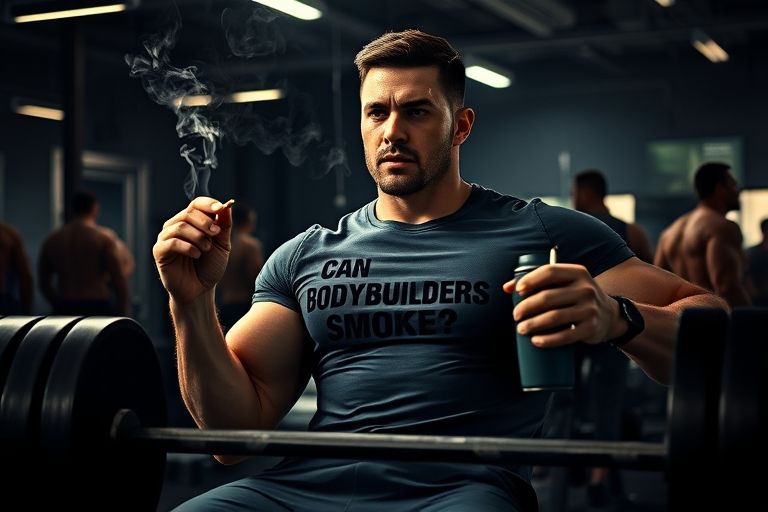

Bodybuilding is a discipline that requires strict dedication to physical fitness and a healthy lifestyle. Athletes in this field follow rigorous training regimens and maintain strict diets to achieve their desired physique. However, there is a common question that arises: can bodybuilders smoke?
Smoking has long been associated with negative health effects, including lung cancer, heart disease, and respiratory issues. These health risks are well-documented, but how does smoking impact the performance of bodybuilders specifically?

One of the primary goals for bodybuilders is to build lean muscle mass. Smoking, unfortunately, hinders this process. Nicotine, the addictive substance found in cigarettes, constricts blood vessels and reduces blood flow to muscles. This decreased blood flow limits the delivery of essential nutrients and oxygen to muscle tissues, hindering their growth.
Furthermore, smoking increases oxidative stress in the body. This can lead to muscle damage and interfere with the body's ability to recover and rebuild after intense workouts. Ultimately, smoking can significantly impede muscle growth and development.

Endurance and stamina are crucial components of a successful bodybuilding routine. Smoking, however, has a detrimental impact on both. The reduced lung function caused by smoking decreases the oxygen-carrying capacity of the blood, making it harder for the body to sustain intense physical activity.
In addition, smoking damages the respiratory system, leading to a chronic cough and decreased lung capacity. Bodybuilders rely on efficient oxygen uptake and delivery to muscles during workouts, and smoking severely compromises this process.

Recovery is an essential aspect of any bodybuilding program. It allows muscles to repair and grow stronger after intense training sessions. Unfortunately, smoking can impair this crucial process.
Smoking compromises the immune system, making bodybuilders more susceptible to infections and illnesses. This can lead to longer recovery times and hinder overall progress. Moreover, the oxidative stress caused by smoking slows down the healing process, prolonging the time it takes for muscles to recover from workouts.

Hormones play a vital role in muscle growth and development. Smoking, however, disrupts hormone levels in the body, negatively affecting bodybuilders' progress.
Smoking has been found to decrease testosterone levels in men and disrupt hormonal balance in women. Testosterone is an essential hormone for muscle growth, and reduced levels can hinder progress in the gym. Additionally, smoking increases cortisol levels, a stress hormone that can contribute to muscle breakdown and hinder recovery.

While the impact of smoking on bodybuilders' performance is evident, it is essential to consider the broader implications for overall health and well-being.
Smoking increases the risk of various health conditions, including cardiovascular disease, respiratory issues, and certain types of cancer. These risks not only affect athletic performance but also pose long-term health hazards.
In conclusion, bodybuilders should avoid smoking due to its detrimental effects on performance, muscle growth, endurance, recovery, hormone levels, and overall health. Quitting smoking can significantly improve an individual's chances of achieving their desired physique and maximizing their athletic potential. Prioritizing a smoke-free lifestyle will undoubtedly contribute to long-term success and well-being in the world of bodybuilding.